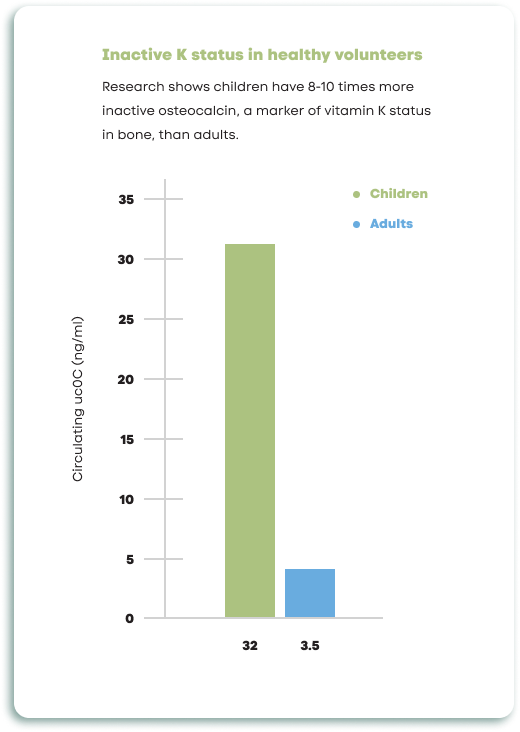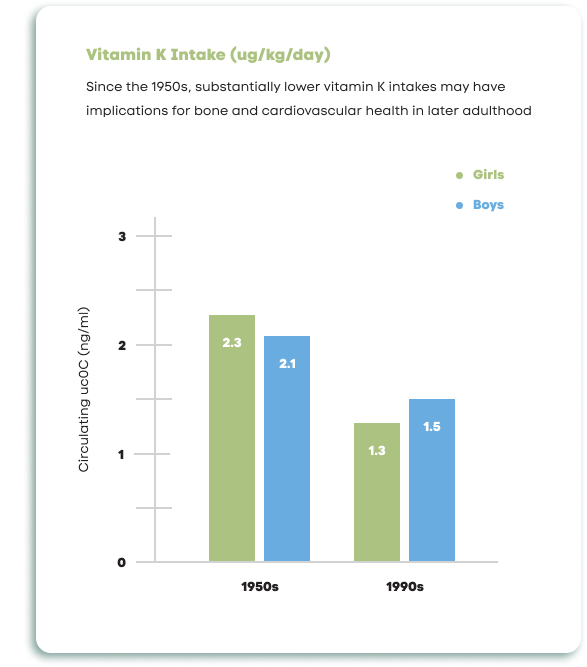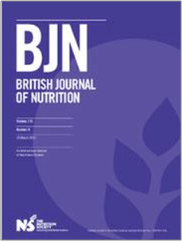Children’s Health

Vitamin K-insufficient diets put children at risk of not optimizing their ability to grow strong bones and, potentially, a well-functioning cardiovascular system later in life.
Bones grow and develop most intensively during childhood and adolescence, with up to 90 percent of peak bone mass acquired by age 18 in girls and by age 20 in boys. Without adequate vitamin K to activate Osteocalcin, calcium cannot be properly used to build healthy, strong bones. Population-based studies and clinical trials have tightly linked better K vitamin status in children (meaning higher levels of K vitamins found in blood serum) to achieving strong, healthy bones. Yet a 2014 study of 42 children and 68 adults showed that levels of the bone-building vitamin-K dependent protein osteocalcin are 8-10 times higher in children than adults, hence their requirement of vitamin K is also higher.
But recent research has shown that most children are vitamin K deficient, which is likely attributable to the consumption of more processed food, and generally less that is naturally rich in K vitamins. With the average dietary vitamin K intake dropping significantly over the last 50 years, today’s intake is insufficient for optimal bone development, as evidenced by a population-based Minnesota study showing an increase in forearm fractures in children over a similar 30-year period.
Furthermore, clinical observations show that vitamin K-dependent Matrix Gla Protein (MGP) helps inhibit arterial calcification. Certain medical cases show that calcification may begin in childhood. Hence, early supplementation with Vitamin K2 may contribute to the development of healthy cardiovascular systems.


The Difference MenaQ7® Makes in Child Populations
The consumption of more processed food, less vegetables and generally less food naturally rich in K vitamins has resulted in sub-optimal K vitamin intake. This recognition has led experts within this field to strongly recommend foods enriched with Vitamin K2 as an alternative to giving children Vitamin K2 supplements.
However, a 2008 study published in the British Journal of Nutrition revealed that daily supplementation with 45-50 mcg of Vitamin K2 as MK-7 (as MenaQ7®) may support bone needs from early childhood through the lifespan. Monitoring healthy children between 6 and 10 years of age taking 45-50 mcg of MenaQ7® for two years resulted in improved vitamin K status as well as stronger, denser bones.

MenaQ7® is featured in quality products around the globe.

